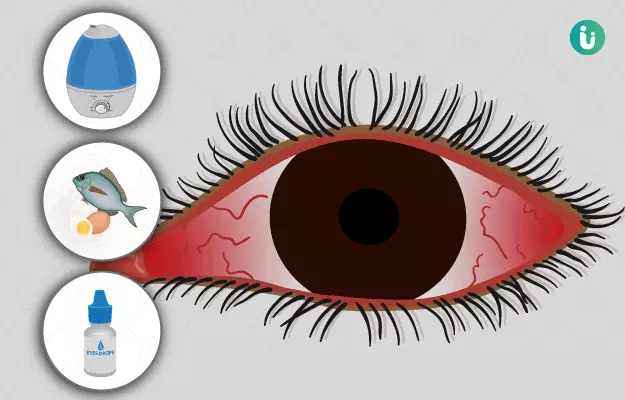Dry eyes is a common problem that can cause eye irritation, itching and discomfort. In most cases, it is quickly resolved and does not require medical intervention: the eyes produce tears to lubricate the outer layer and keep it clear of infections. But sometimes, the quantity and quantity of tears is not sufficient, which can lead to dryness.
Dry, windy conditions can sap tears from the eyes and cause dryness. Staring too long at a screen and not blinking enough can also have this effect. As you age, tear production decreases—this is another common reason for dry eyes. People who wear contact lenses for prolonged periods can also experience dryness of the eyes. In other cases, underlying conditions such as diabetes, autoimmune diseases or tear gland inflammation can be responsible for dry eyes. Some drugs, like antihistamines, can also cause dry eyes.
(Read more: Eyelid inflammation (blepharitis))
There are many home remedies you can try that should bring you relief quite quickly. However, if the dryness does not improve or you notice symptoms worsening, get in touch with your ophthalmologist.













